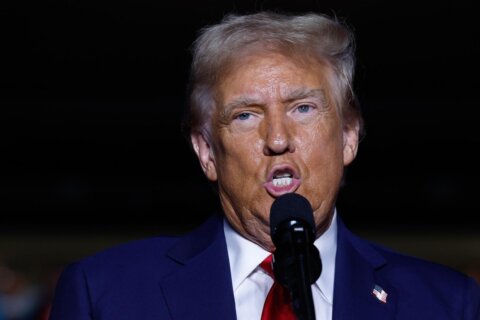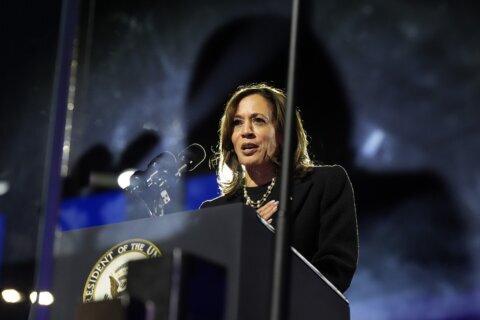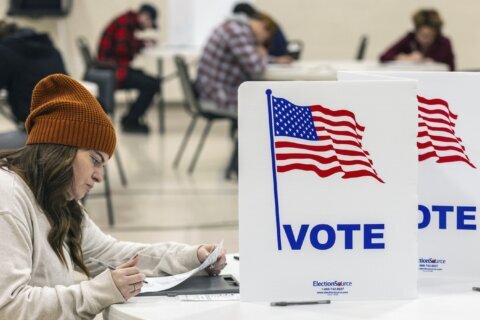Former Vice President Joe Biden’s blowout South Carolina win reshaped the Democratic presidential campaign and positions him as the surging moderate alternative to Vermont Sen. Bernie Sanders in a 48-hour sprint to Super Tuesday.
And it might just have helped him — after 50 years of thwarted presidential promise and personal tragedy — to strike an emotional register that steadies a meandering campaign and finally exemplifies his core argument: He’s the best Democrat to take on President Donald Trump.
Biden’s resilience cemented the core ideological struggle at the center of this year’s Democratic primary. After four contests, Sanders is rising on a coalition of young, liberal voters, energized by rising support among Hispanics. Biden now vaults to the top of a more racially diverse, older and moderate wing of the party, after struggling to power up a campaign that looked stronger in theory than practice.
The issue for Democratic leaders is that, to beat Trump, both wings of the divided party must unite and there is little sign that any candidate can appeal to both sides at the same time. That raises the possibility of an extended Democratic delegate duel that splits the party on race, ideology and age — and preserves the chance of a contested convention in July.
Biden has been running for president on-and-off for 33 years, but never celebrated a winning night until Saturday’s thumping 30-point victory in a primary candidates have used in previous cycles to launch themselves towards the nomination.
In his victory speech, perhaps for the first time, he effectively conflated the agonies of his own life — after burying a young wife and two children, suffering a life-threatening brain aneurysm and flaming out in two previous White House campaigns — with a party and a nation he believes have been battered by a mendacious president.
“For all those of you who have been knocked down, counted out, left behind — this is your campaign,” Biden declared.
“We’re decent. We’re brave, we’re resilient people. We can believe again. We’re better than this, we’re better than this president. So, get up, take back our country. This is the United States of America.”
Visit CNN’s Election Center for 2020 news
Biden’s victory, half a lifetime in arriving, emphatically answered a question raised by poor showings in the early states: would his firewall with African American voters survive?
It did. And now the party must endure what could be an elongated battle for the future of the party fought by two septuagenarians.
Sanders: ‘You can’t win them all’
Sanders ruefully conceded defeat, but with a favorable slate of races looming on Tuesday he appears well placed to advance his “revolution” that threatens to overtake the Democratic Party.
“You can’t win them all,” Sanders said, of the South Carolina result, after heading to Virginia, a Super Tuesday state.
“There are a lot of states in this country, nobody wins them all.”
On Super Tuesday, Sanders will be favored in some of the biggest prizes, in populist states like California and Texas, and is tipped to perform well in liberal Massachusetts and Minnesota — home to two of the race’s remaining candidates, Sens. Elizabeth Warren and Amy Klobuchar, respectively.
Biden, who constantly touts his role as Barack Obama’s vice president, will hope to vault from a win in South Carolina into other states where black voters play a key role, including North Carolina, Tennessee, Alabama and Arkansas.
But time is short for the 77-year-old former Delaware senator to capitalize on post-South Carolina momentum. He is sure to get a big fundraising boost — but will struggle to place advertising before 14 states and one territory vote on Tuesday.
And there remain questions about his capacity to put together a firing-on-all-cylinders campaign and fundraising infrastructure to compete with Sanders nationwide, small donor political movement.
Sanders still looks favored to emerge from Super Tuesday with a significant lead in delegates, which could be difficult to overhaul even if Biden can unite moderates, given the Democratic system of proportionally awarding delegates.
The former vice president will hope to establish himself as the only possible alternative to Sanders. And he will hope that his big win in South Carolina sends a signal to moderate voters that he — and not former New York Mayor Michael Bloomberg, who has dropped half a billion dollars on the race and faces his first voters on Tuesday — is the only viable alternative to Sanders.
Biden: America doesn’t want a revolution
Biden took direct aim at Sanders in his victory speech, arguing that America would reject his radical democratic socialist approach that Biden said would not be able to deliver on big promises.
“Folks, win big or lose, that’s the choice. Most Americans don’t want the promises of revolution. They want more than promises. They want results,” Biden said.
While the overall momentum and the map on Tuesday appears to favor Sanders, there were warning signs in South Carolina.
For all the talk that he has broadened his coalition four years on from his loss to Hillary Clinton, he won only one in five black voters — a critical demographic in November. Four years ago, Sanders won 14% of African Americans in the state, according to exit polls. It also remains unclear whether Sanders has strong appeal among moderates — and whether, faced with four more years of Trump, he could unite the party around him as nominee.
Intense pressure will now mount on other centrists like Klobuchar and former South Bend, Indiana, Mayor Pete Buttigieg to wrap their campaigns to avoid siphoning delegates away from Biden in a way that bolsters Sanders.
Former Democratic candidate Andrew Yang said on CNN on Saturday night that each candidate faced a fateful choice, one he made himself a few weeks ago after failing to crack the top tier.
“No. 1, can you win? No. 2, are you helping your cause by staying? And No. 3, are you helping to defeat Donald Trump by staying?” Yang asked.
One candidate who had that conversation with himself and decided to pull out on Saturday night was Tom Steyer — the billionaire who dropped more than $20 million of his own cash in South Carolina but looks set to come a distant third place.
Still, there is no guarantee that supporters of the moderate candidates would automatically gravitate towards Biden if their favorites drop out.
Another candidate — Warren, who has so far failed to topple Sanders as the champion of the most progressive Democratic voters — said on Saturday night her campaign was built for the “long haul.”
But she also appeared to hint at an assessment of her prospects in the days after Super Tuesday.
“I’ll be the first to say that the first four contests haven’t gone exactly as I’d hoped,” Warren said. “But Super Tuesday is three days away and we’re looking forward to gaining as many delegates to the convention as we can.”
She added, “It might take days or even longer to know the full Super Tuesday results, but they will be critical in sorting out who our nominee will be this year.”
A Democratic official close to the Biden campaign told CNN’s Jeff Zeleny that it would help the former vice president if Warren and Klobuchar stay in the race through Tuesday, since they will give Sanders a close run in their home states and put a ceiling on the delegates that he can win there.
It appears there is no realistic path to the nomination for Warren, Klobuchar and Buttigieg, given Saturday’s results and the long term look for the race.
Some Democratic leaders fear that Sanders’ brand of “democratic socialism” will represent a juicy target for Trump in November and will prove too radical for suburban voters who handed Democrats the House in 2018.







